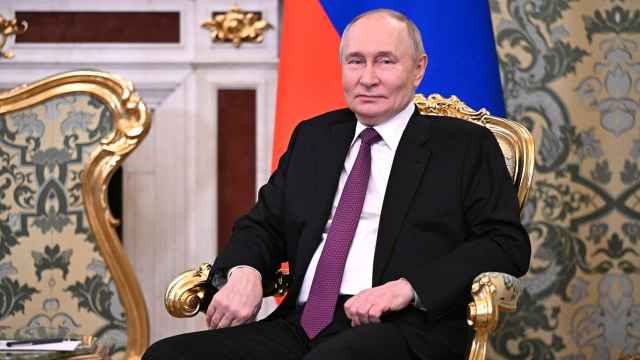
Boris Bobrovnikov
Director General
CROC
These days almost everything can be outsourced: from office cleaning to security, logistics, HR record management and accounting. It is difficult for the Russian mentality to "give away" the company's most valuable asset &mdash information and everything related to its storage and processing &mdash to a third party. However, in the West, outsourcing is a very popular, highly cost-efficient and viable business model. For example, the United States plans to save $10 trillion over the next 10 years via cloud computing while the European Union aims to save $1 trillion during the next five years.
Not all Russian managers are as progressive as their foreign peers. However, in my opinion, three-quarters of Russian executives today are considering IT outsourcing, due to the fact that technology and hardware rapidly become obsolete and the fact that new business objectives often require greater computing capacity. By spending time and money on technology upgrades and expansion, businesses risk losing their competitive advantage. Although there is no universal formula for success, and IT outsourcing is not the best model for everyone, when used properly it is an effective and flexible tool.
For maximum return on investment, the following points must be considered:
1. IT outsourcing benefits
IT outsourcing allows companies to focus on their core business, leave technological issues to professionals, and reduce technology procurement, implementation and maintenance costs as well as IT staff. Data center collocation services enable business continuity and access to powerful computer resources without investing in the construction and maintenance of an expensive in-house data center, ensuring that only services that are actually used are paid for.
2. Who benefits from IT outsourcing?
Intelligent companies that carefully control costs, including all IT costs, including indirect and variable costs from electricity to office rental, not only hardware and payroll expenses.
3. How can the costs and benefits of outsourcing be calculated?
For a full calculation of IT costs, there are special accounting methods for IT assets. For example, a well-established practice is when the whole IT unit, consisting of experts and their work, systems, equipment and other resources, is seen through the prism of services provided by the IT department. This gives a working idea of how your own IT department operates, as well as of outsourcing offers that exist on the IT market.
4. What can be done via IT outsourcing?
Traditionally, outsourcing consultants advise companies to keep all core business functions in-house and to outsource all others. Recent outsourcing trends such as cloud computing and collocation allow for the outsourcing of the entire infrastructure. For example, a backup data center with copies of all business-critical applications can be created in an external cloud, improving reliability and stability and reducing costs. The best way to understand IT outsourcing value is to try it. Some companies offer prospective customers the opportunity to try IT outsourcing services at no cost for a couple of months to appraise service quality, evaluate benefits and make an informed decision. Of course, the actual price of services should be available in advance.
5. What must be considered and controlled at the executive level?
Outsourcing is not a reason for business leaders to change function, since both internal IT unit processes and external subcontractor operations must be controlled. The quality and reliability of business processes remain the most important factors, regardless of whether they are internal or fully/partially outsourced.
6. IT outsourcing risks
Outsourcing risks are similar to those of any long-term cooperation between companies. However, unlike in many other cases, proven tools are available to help manage outsourcing process. For example, service level agreements can be used to define service requirements clearly. As with any other project, the key to success is mutual trust, which takes time to win, and a focus on results, transparency and awareness.
A Message from The Moscow Times:
Dear readers,
We are facing unprecedented challenges. Russia's Prosecutor General's Office has designated The Moscow Times as an "undesirable" organization, criminalizing our work and putting our staff at risk of prosecution. This follows our earlier unjust labeling as a "foreign agent."
These actions are direct attempts to silence independent journalism in Russia. The authorities claim our work "discredits the decisions of the Russian leadership." We see things differently: we strive to provide accurate, unbiased reporting on Russia.
We, the journalists of The Moscow Times, refuse to be silenced. But to continue our work, we need your help.
Your support, no matter how small, makes a world of difference. If you can, please support us monthly starting from just $2. It's quick to set up, and every contribution makes a significant impact.
By supporting The Moscow Times, you're defending open, independent journalism in the face of repression. Thank you for standing with us.
Remind me later.





